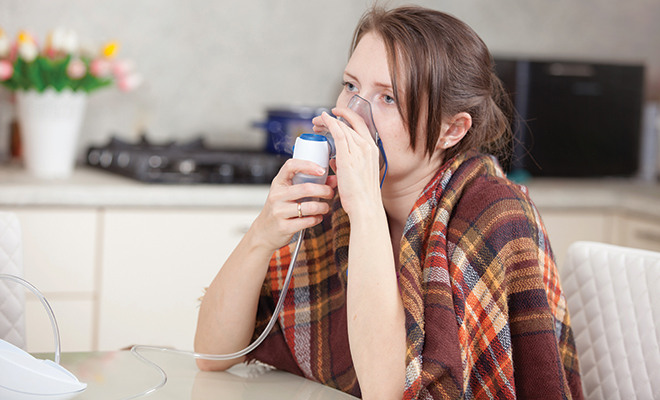
The Long-Haulers: The Lasting Effects of COVID on Survivors
Angela, 42, was diagnosed with COVID-19 in May 2020. Since her recovery, Angela hasn’t been the same person. During work hours, she is tired and struggles to focus while continuous joint and muscle pain keeps her from getting to the gym like she did before. Her biggest physical accomplishments each day are getting out of bed, getting to her desk and cooking dinner for herself each night.
Many people with COVID-19 experience mild symptoms or moderate illness; about 5 percent of people who contract the virus become seriously ill. On average, people recover from COVID-19 within two to six weeks, but for some symptoms can linger much longer. According to an August CDC report, more than a third of those who have tested positive with symptoms for COVID-19 don’t feel like they’re back to normal weeks and sometimes even months later.
Those who experience long-term symptoms after contracting the coronavirus are called the COVID long-haulers; these individuals may have months-long symptoms that deplete their quality of life and productivity. Long-haulers are a mixed group of people that includes those who experienced both mild cases of COVID and those who had much more severe issues. Ages range from relatively young, healthy people to older individuals with underlying health conditions. Researchers are continuing to analyze the data about long-haulers and to learn how to treat them.
Thousands of these long-haulers have joined online support groups through social media, private chat channels and special interest websites, where they can find support, talk about their symptoms and learn about things they can do to recover. The long-term health effects continue to be studied by experts as the world makes its way through this unparalleled pandemic.
Long-Term Effects
While many people with COVID-19 fully recover within a few weeks, others’ symptoms often linger months after their diagnosis. Even those who had mild versions of the disease continue to experience symptoms after their initial recovery. Patients with a background of health issues and elderly people are the most likely to experience continuing COVID-19 symptoms. Symptoms generally include tiredness and fatigue; shortness of breath; cough; headache; and joint pain.
Fatigue seems to be the most significant symptom for long-haulers; feeling tired and run down most of the day is common. Completing basic tasks such as taking a shower or fixing something to eat leaves them feeling exhausted.
Some of the symptoms are more serious, however. In a survey conducted by Indiana University School of Medicine, approximately 1,500 members of Survivor Corps, a COVID-19 support group, reported almost 100 different symptoms ranging from accelerated heartbeat to nerve damage in the limbs and even hearing problems.
Long-Term Organ Damage
Doctors and researchers are finding that the virus can trigger severe and lasting damage to major organs, including the heart, lungs and brain. A rising number of studies indicate many COVID-19 survivors experience some type of heart damage, even if they didn’t have underlying heart issues and weren’t sick enough to be hospitalized. Damage and inflammation to the heart muscle (myocarditis) or inflammation of the covering of the heart (pericarditis) can trigger chest pain, shortness of breath and heart palpitations. And, as COVID-19 unfolds, researchers are finding that although it’s rare, young adults and athletes are experiencing heart complications.
We know the lungs can suffer long-term damage when COVID attacks, causing inflammation, pneumonia in severe cases and acute respiratory distress syndrome, or ARDS. Scar tissue can form on the tiny air sacs (alveoli) in the lungs and result in persistent breathing problems for patients, especially those who may have been on a ventilator.
The brain can also be a target, with memory, attention and function affected. Patients may have difficulty managing day-to-day tasks or fully functioning at their job. If brain issues persist for extended periods, the emotional aspects can be overwhelming, and relationships with family and friends may also suffer. Some common long-term psychological effects may include anxiety, depression, and post-traumatic stress disorder.
The good news is that most people who have COVID-19 recover swiftly and without long-term issues. But, since the virus is new, no one really knows how contracting it will affect some people over the long haul. Doctors and caregivers are monitoring patients closely to decipher how their bodies will function after recovery.
Knowing the possible long-lasting problems from COVID-19 gives us the opportunity to reduce the spread of the disease by following the safety precautions that we have been told for months: wear masks, social distance and wash our hands.
If you or someone you know is suffering from long-term health issues after a COVID diagnosis, check with your doctor. Groups and organizations can also offer emotional support. Check Facebook, Instagram and other social media for helpful pages and ask your medical provider for local options. ■
Sources: cdc.gov, mayoclinic.org, sciencemag.org and webmd.com.







